On this page:
- Curriculum
- Students
- Teachers
- Specific nature of the school
- Graduates
- Technology
- Languages
- Achievements
- Challenges, difficulties

Our Kids: When you became principal of IAS, did you change anything in the school?
Matthew Krasner: We have a very specific direction we’re going in, and a very clear plan of development, curriculum, and methodology. What I bring to the table is focus on culture and health, both physical and mental. Before, we didn’t have a full-time school psychologist, but this year we do, and he has had a lot of work from the very beginning.
For me, it’s particularly important because as a person working in education I can see the minds of our students are changing. Children don’t sleep well, and their energy and concentration levels are going down. I think teachers can’t teach the same program all the time without any modifications addressing this problem—the changes in the minds of their students. Children and young people suffer from overstimulation.
Our Kids: Is this how the idea of mindfulness courses came about?
Matthew Krasner: Yes, we started this program in 2015, first as an eight-week course for teachers, and then we began to offer it as an after-school course for students . Now we’re considering the possibility of using this instead of a traditional detention.
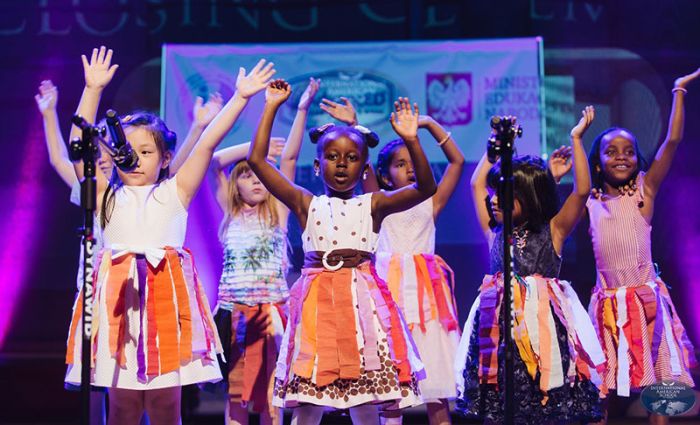
Curriculum
Our Kids: You implement three different curricula: Polish, American, and IB. How does this work logistically?
Matthew Krasner: Let’s start with the Polish curriculum, which is offered only to a small group of interested students—about 5%. It’s used by students who will be taking the school-leaving exam at the end of elementary school. Classes are divided, and when international students have classes with foreign teachers (native speakers), students who follow the Polish curriculum have classes with a Polish teacher and study for example the Polish language, Polish history, or have other classes in Polish, e.g., physics or math. Those students have about half of their course load in Polish and the other half with all the other students.
Our Kids: Does this mean that once they reach high school, they also follow the Polish curriculum and take the Polish diploma—matura?
Matthew Krasner: It’s possible, but the majority of them choose an international diploma. Most students decide on an international curriculum and are declared international students. When they reach Grade 11, they can start the IB programme. We don’t offer IB at the lower levels, i.e., PYP (in elementary school) or MYP (in middle school). We only offer the advanced diploma program IBDP. We organize teaching in elementary school, and what was until now middle school, so that students are prepared to continue on to the advanced IB programme.
At lower levels of education, we offer the American curriculum. We’re accredited by an organization of 36,000 schools across the world, which is called Cognia (formerly AdvancED), and every five years we need to renew our accreditation to ensure we’re in compliance with the American system. In Grade 11, students decide if they want to take an IB diploma or finish their education in high school in the American system. 65% choose IB.
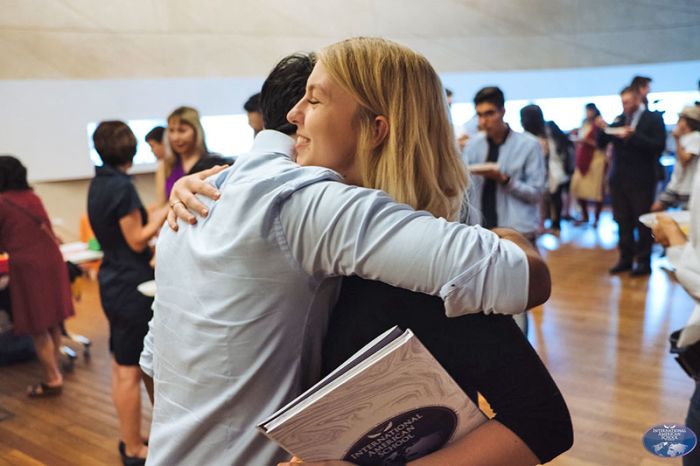
Students
Our Kids: What percentage of students in your school are Polish?
Matthew Krasner: About 20%, and this is the largest national and linguistic group.
Our Kids: How about the others—are they mostly children of parents who came to Poland for a short time, for example on a contract, and who then leave Poland or are they people who settled in Poland?
Matthew Krasner: We have both groups. Some students have been with us from the very beginning, for many years, but we also have students who came to Poland with their families because their parents have contracts here. We have children of diplomats—embassy staff who come here for a few years and then leave. Generally we have quite a mix. About 20 to 30% of students a year leave.
Teachers
Our Kids: As far as I know, your teachers also come from many different countries. Does that mean your faculty turnover rate is high?
Matthew Krasner: The school administration is very stable. I’ve been here for 14 years, my vice principal for 7 years, our IB coordinator for 11 years. But of course we do have teachers who came to Poland for two years and then went back to their countries. Among the teachers employed full-time, 45% come from the US or Great Britain, 35% from Poland, and the remaining 20% from other countries, including India, France, Pakistan, and Turkey.
Specific nature of the school
Our Kids: In what way is your school different from other schools, especially international schools in Poland?
Matthew Krasner: I think what’s special is our school community, both the students and faculty. We feel as if we were in the United Nations. Each class has students from a dozen countries. In American international schools, the dominant group is students from the US, in British schools, it’s Great Britain, whereas in our school there’s a lot more diversity. Our students come from 35 to 41 countries, and our teachers come from 10 different countries.
The other thing is the size of the school. We have just one class at each level, each class has a maximum of 24 students, and altogether we have 270 students. That’s why the students have very close relationships with each other.
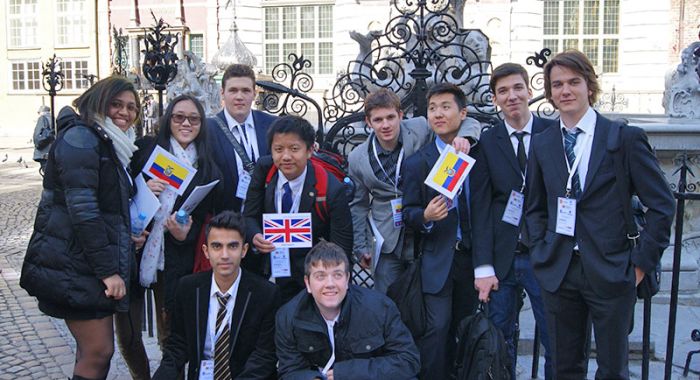
Graduates
Our Kids: Do you keep track of what’s happening with your students once they graduate from your school? Where do they land in terms of further education?
Matthew Krasner: It varies, but you can generally say that about 50% of our graduates study abroad, while the rest stay in Poland. We have graduates who got into Oxford (psychology and chemistry), the University of Edinburgh (medicine), ESEI International Business School in Barcelona, Berklee College of Music in Bostonie, Ecole hôtelière de Lausanne in Switzerland, and SGH School of Medicine here in Warsaw. Many go on to British and European universities, some, but fewer, to American and Canadian ones.
Technology
Our Kids: You mentioned that modern technology is something that causes overstimulation of students’ brains. Does this mean that you don’t use technology in your teaching?
Matthew Krasner: What’s important is balance. Last year we experimented with much more extensive use of technology than before in response to the suggestions of our accrediting body Cognia. They wanted us to offer more so-called digital learning. What is it? In class students interact with a digital platform to collaborate with each other and access teaching materials. We began to use online textbooks in math, English, and science from Grade 6 onwards.
However, when we conducted an evaluation and analysis of results at the end of the year, nobody was particularly happy with this. Students, teachers, and parents all thought that the system distracted students, that they paid attention to their screens instead of talking to each other and interacting with the teacher. It’s also difficult for teachers to control what students do when they have open laptops.
On top of this, the experience of the students in class was not that much different from what it is when they work alone at home. We decided that it would be better if the students used laptops in a much more restricted way. This year we have used those textbooks less, mostly in Grades 11 and 12, where we use Kognity Intelligent Textbooks. Teachers can use the online platform in class to enrich and complement the curriculum.
Our Kids: Do you assign homework?
Matthew Krasner: Yes, we use a system that’s often used in IB programs, where teaching materials can be uploaded so that even parents can have access to them, and which allows students to submit their homework online.
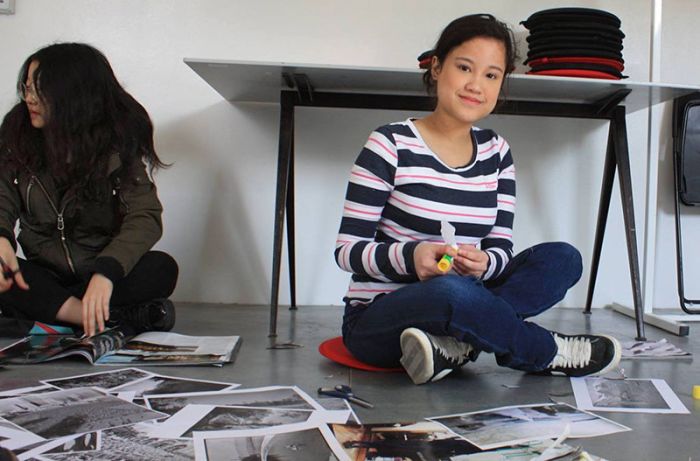
Languages
Our Kids: Apart from the English language, what are your other languages of instruction, and what other languages do you teach?
Matthew Krasner: We teach Polish as a second language twice a week. Apart from that, students learn French and German beginning in Grade 6 for three hours a week. In elementary school, students learn both these languages, and in Grade 8, they choose which of those two languages they want to treat as their official second-language.
So our students study three languages: Polish, English, and French or German. Many of our students also have their native languages, so they use four languages, and are fluent in at least two: their native language and English.
Achievements
Our Kids: What are you most proud of? What, in your opinion, are IAS’s most significant achievements?
Matthew Krasner: I’m proud of our extracurricular activities and of what we do outside of class. We have a great school magazine, The IAS Times, to which children contribute articles in English and which they themselves edit. It’s quite unique in Poland. It’s a 24-page quarterly which is very well designed and students are very proud of it.
Our students are also involved in a project called “Model United Nations” as well as a very interesting program—the World Scholar's Cup, which focuses on creativity. They also take part in a history program, Sound in the Silence, which recently allowed them to participate in a project called “Art Through History.” This was an 8-day trip to Germany, where they visited a labor camp and studied its history. On the basis of their own experience, they were asked to create art forms, for example, lyrics or rap songs, which were performed there. I’m really happy about this because I know they will definitely remember that experience for many years. We concentrate on such initiatives.
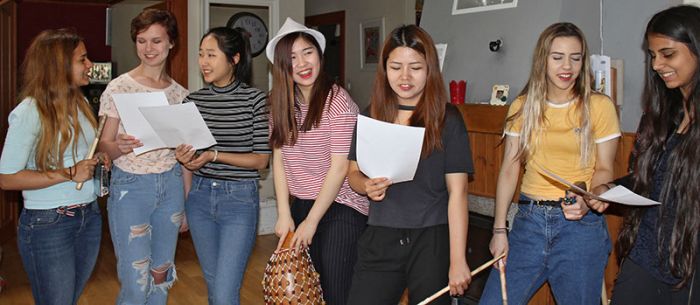
Challenges, difficulties
Our Kids: Are there any difficulties that you encounter?
Matthew Krasner: Language. It’s difficult to teach a group of students who have different mother tongues and various degrees of linguistic skills, who come from so many different countries and cultures, which in turn implies different educational backgrounds and different expectations. But these challenges are also our strength, because our teachers have to give a lot more, and this draws the best out of them.
People who read this also viewed:
- Warsaw private schools
- Kraków private schools
- Poznań private schools
- Wrocław private schools
- Łódź private schools
- Rzeszów private schools
- Gdańsk & Gdynia private schools
-
Advice Guide
- ABC of educational terminology: Glossary of terms and concepts
- The admissions process
- Advantages and disadvantages of studying in an international school
- The application process
- Benefits of Polish private schools
- Bilingual schools
- Boarding schools
- Choosing a private or nonpublic school in Poland
- Compare schools in Poland
- English schools in Warsaw
- Homeschooling
- International schools in Kraków
- International schools
- Private school interviews
- Music education
- Myths about private education
- Non-public schools in Poland
- School open houses
- Our Kids Interview: Get to know EF Academy Oxford
- Our Kids Interview: Get to know Open School
- Our Kids interview: Get to know Regent College International Schools
- Our Kids Interview: Get to know The American School of Warsaw
- Our Kids Interview: Get to know The British School Warsaw
- Our Kids Interview: Get to know Wrocław Cosmopolitan School (two interviews, new video)
- Poland school profiles
- Private day schools
- Gifted schools & programs
- Private Jewish schools in Poland
- Language schools
- Private school tuition and costs in Poland
- Private schools in Poland
- Private schools in Poland offering French-language immersion
- English immersion schools
- Poland school uniforms
- Private special needs schools in Warsaw
- Public versus non-public schools in Poland
- Private school questions
- Private school rankings
- Reasons for choosing private schools - Our Kids’s survey report
- Religious schools
- Schools and classes for children with ADHD in Poland
- Social primary schools
- Social Schools
- Special educational needs (SPE) certificates
- Special needs schools
- Study abroad at a private school
- The first annual non-public school fair in Poland
- The first annual Our Kids non-public school expo in Warsaw was a great success
- Third Private School Expo in Warsaw - summary
- Types of schools
- Types of schools in Warsaw
- Warsaw preschool costs
- Why private school?
- Why parents go private
-
Grades
- Boarding high schools
- Choosing a high school in Poland
- Mokotow High School Campus - a new Warsaw high school and Thames British School campus
- Montessori nursery schools
- Montessori preschools
- Our Kids Interview: Get to know English Montessori School Katowice
- Our Kids Interview: Get to know FSA School
- Our Kids Interview: Get to know KIDS & Co.
- Our Kids Interview: Get to know Polish British Academy of Warsaw
- Our Kids Interview: Get to know The English Playhouse and The English Primary
- Poland education: grade levels
- Preschools in Warsaw
- Private & non-public preschools
- Private & non-public primary schools
- Private bilingual elementary schools in Warsaw
- Private high schools
- Private high schools in Warsaw
- Private middle schools
- Nursery schools
- Private primary schools in Warsaw
- Social high schools
-
Locations
- Boarding schools in Warsaw
- English schools in Kraków
- International Baccalaureate (IB) schools in Warsaw
- International schools in Warsaw
- Montessori schools in Warsaw
- Non-public schools in Warsaw
- Our Kids Interview: Get to know EF Academy
- Our Kids interview: Get to know Excellence in Education better
- Our Kids Interview: Get to know PRIMUS Non-Public Primary School No. 47 and Non-Public Secondary School
- Our Kids Interview: Get to know the Canadian School of Warsaw
- Our Kids Interview: Get to know The Primary and Secondary Schools of the Sisters of Nazareth in Warsaw
- Private Catholic and Christian schools in Warsaw
- Private day schools in Warsaw
- Private language schools in Warsaw
- Private schools in Bialystok
- Bydgoszcz schools
- Częstochowa schools
- Private schools in Gdańsk & Gdynia
- Katowice schools
- Private schools in Krakow
- Lublin schools
- Olsztyn schools
- Private schools in Poznań
- Private schools in Rzeszów
- Szczecin schools
- Private schools Warsaw
- Private schools in Wrocław
- Zielona Góra schools
- Private schools in Łódź






 POL
POL CAN
CAN